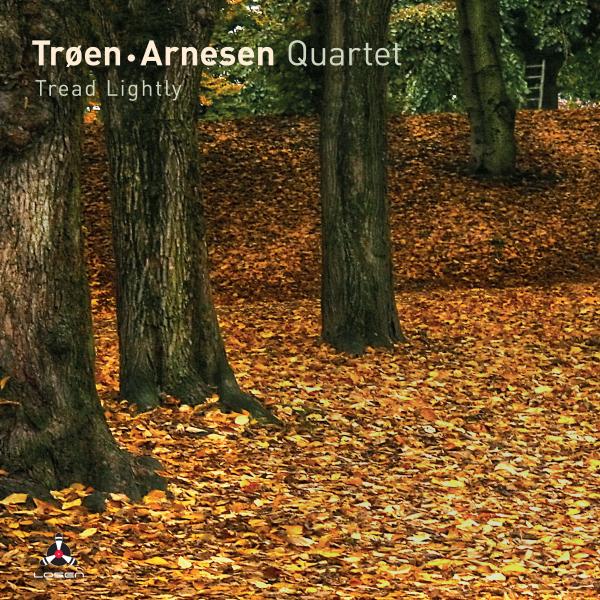BERNE/SPEED/ANDERSON/KING: Broken Shadows (Intakt Records)
On "Broken Shadows" we meet four leading musicians from the American jazz scene today. Alto saxophonist Tim Berne, tenor saxophonist Chris Speed, bassist Reid Anderson and drummer Dave King. In recent years, all four have distinguished themselves with a number of brilliant and exciting records. Berne and Speed have played together regularly since 1992, and Anderson and King were two-thirds of the band The Bad Plus, who have played together for more than 35 years. This "all star" project is named after an Ornette Coleman composition and honors the legacy of the music of some of their idols and mentors. Ornette Coleman, Dewey Redman, Charlie Haden and Julius Hemphill. Most of the songs are made by Ornette Coleman, but we also get two songs made by Julius Hemphill, "Body" and "Dogon AD", one is made by Charlie Haden, the beautiful "Song For Ché", which is one of the most beautiful compositions from Haden, and "Walls-Bridges" made by the, in my opinion, overly disapproved saxophonist Dewey Redman. And they work hard with the opener, Ornette Coleman's "Street Woman", a typical Ornette song, which can also be heard on Coleman's album "Science Fiction" from 1971, in which Redman also participates. Here we get a great opening with the two saxophonists at the forefront of the typical and rhythmic theme, before they shine in different directions with brilliant collective improvisations. Then follows the slightly funky "Body" by Hemphill, which here, almost, is interpreted in an Ornette Coleman landscape. This was the last song on Hemphill's album "Flat-Out Jump Suite" which came on Black Saint in 1980, which, more or less, was a tribute to Coleman. Here it is again very nice played, and we notice Anderson's brilliant bass playing, before they are over in Ornettes "Toy Dance" from the album "New York is Now" from 1968. This is a brilliant tribute to Coleman, and you can almost hear the respect in Berne's alto saxophone playing over an extremely driving comp, before we get «Ecars», also a Coleman composition from «Ornette on Tenor» from 1962. This starts with the theme of unison playing between the two saxophonists, and although Coleman's distinctive way to write songs on rails through, it is a personal and nice tribute. This is followed by "Civilization Day", also from Coleman's “Science Fiction” record. And we get it in a furious version where both saxophonists go completely in the "track" of "the master himself", before Anderson delivers a bass solo that smells scorched, before the song develops and we get a delicious improvisation sequence with the two saxophonists which can hardly be done better, until we are suddenly over in "Comme il Faut" from the brilliant Coleman album "Crisis". Here we get a bass solo that is right on top of Charlie Haden. This is something as rare as a ballad from Coleman, and the four do not play it so differently from the version on "Crisis", although I like King's drumming better than young Denardo Coleman's playing on the original. An excellent version! Then follows Julius Hemphill's "Dogon A.D.", which is pretty funky and laid back. This was the title track on Hemphill's record from 1972 on his own company Mbari Records, that later, in 1977, was released on Freedom. This is a good break from all the Coleman songs and brings in Hemphill's fine and funky compositions, which are interpreted in an extremely delicious way. Then we get Coleman's "C.O.D.", the opening track on Coleman's record "Ornette at 12" on Impulse! from 1969. I'm not sure how old his son Denardo was when he appeared here, but he may not have been more than, let’s say, 12 years old. We are getting the song served in the Ornette way, where the two saxophonists do an excellent job. Here, King also escapes with a nice drum solo, before it all turns into a "four flat" accompaniment, where Anderson pulls himself on the bass and pulls the others into a wonderful sequence. Then follows Coleman's "Una Muy Bonita" which came on single in 1960, and is a slightly different Coleman song. A little Latin in the estimate, but with brilliant tenor saxophone playing from Speed, before Berne takes over and gives a wonderful extension of the solo, before we get Charlie Haden's "Song For Ché", which we have heard a number of versions of with many different constellations with Haden. But it is also on Coleman's "Crisis" album from 1969 in a nice version. And the version we get here is close to the "Crisis" version, and Anderson's two bass solos are like "cheated out of the nose" on Haden. This must be one of the most beautiful jazz compositions ever made! Then the quartet moves towards the end of the session with Dewey Redman's "Walls-Bridges". Redman played in a number of Coleman's 60s constellations, and is a great composer, so that he is on this tribute is just right and reasonable. And here we get a version that is close to the Coleman landscape, before they end with the title track, the sore ballad "Broken Shadows" taken from the album "Ornette" which was recorded in 1971 and 1972. This must be one of the finest ballads Coleman wrote. A beautiful and melancholy theme that is played here by Speed during Berne's freer improvisation at the top. And once again, it sounds like it's Charlie Haden on bass. A beautiful version, which is almost tearful, so beautiful is it. "Broken Shadows" has become an almost heavenly great tribute to, primarily Ornette Coleman, but also to Julius Hemphill, Charlie Haden and Dewey Redman, made with great respect from four of the most exciting musicians on the American jazz scene right now. Highly recommended!



















